To nurture the skills of resilience is key to providing young people with the ability to cope with stress, adversity, failure and challenges. Resilience is evident when young people have a greater ability to “bounce back” when faced with difficulties and achieve positive outcomes.
Resilience supports the individual to critically evaluate the positive/negative effect that certain behaviour may have and helps provide the confidence to speak out about it or seek support.
Resilience is required to exert self-discipline in the use of digital devices, to limit screen time and prioritise the importance of getting sufficient sleep.
Learning about puberty and the changing adolescent body and brain is included in the newly statutory area of Health Education (insert link Relationships Education, Relationships and Sex Education and Health Education guidance (publishing.service.gov.uk). Learning about puberty is most commonly covered as part of an RSE topic, at both primary and secondary levels.
The DfE guidance further states that ‘Puberty should be addressed before onset so, as far as possible, pupils are prepared in advance for changes they will experience’. It is sadly still the case that many young people experience fear and shame around puberty and are unsure about reliable sources of support. Through the provision of a spiral PSHE curriculum, delivering age-appropriate content and skills, schools can address this issue and support their young people to develop positive attitudes towards the amazing changes which their bodies will go through.
The issue locally and nationally
The percentage of primary school pupils with social, emotional and mental health needs is broadly similar across Cambridgeshire to the rest of England, although the rate is lower in Peterborough. At secondary level the percentage in both Cambridgeshire and Peterborough is lower.
Cambridgeshire and Peterborough are areas of considerable growth, based on national estimates it is thought that the number of young people aged 5-17 years with a diagnosable mental health problem will increase by approximately 1,062 before 2021. Increases are expected to be highest in Peterborough and Cambridge City, with 12% and 11% increases respectively by 2021. Peterborough is forecast to see the greatest rise in 5-10 year olds compared to 2016, with an increase of 10% by 2021. The biggest growth in 11-17 year olds is likely to be in Cambridge City (21% compared to 2016) whereas the number of 18-25 year olds is predicted to fall by 5% across Cambridgeshire and Peterborough.
It is predicted to change over next few years over the next few years:



Source – cambridgeshireinsight.org – CCC/PCC Public Health
Nationally
- Overall, in 2020 1 in 6 children (16%) age 5-16 have a probable mental disorder (this compares to 1 in 9 in 2017)
- There are 4 broad categories of mental disorders: emotional; behavioural; hyperactivity and other less common disorders
- Rates of behavioural and hyperactivity disorders are highest in 5-16-year olds and rates of emotional disorders are highest amongst 17-19-year olds
- There are gender and age differences in prevalence of mental disorders:
- Among 2-4-year olds boy (6.8%) are more likely than girls (4.2%) to have a disorder
- Among 5-10-year olds boys are twice as likely (12.2%) as girls (6.8%) to have a disorder
- Among 11-16-year olds boys (14.3%) and girls (14.4%) are equally likely to have a disorder
- Among 17-19-year olds girls (23.9%) are more than twice as likely as boys (10.3%) to have disorder
- 7% of 11- to 16-year-old girls and 3.6% boys reported self-harm or suicide attempts rising to 21.5% 17- to 19-year-old girls and 9.7% boys
Source: PHE December 2020
What is known to work
- Providing a comprehensive programme to help develop children’s social and emotional skills and wellbeing, taking a whole school approach and supporting mental health awareness and mindfulness have all been shown to be effective at school and community level. This programme should include regular opportunities to develop skills for recognising emotions, regulating emotions, building relationships which support positive mental health.
- Offering opportunities to practice positive mental health strategies through day-to-day classroom management and wider enrichment and pastoral opportunities.
- Schools/colleges play an important protective role in promoting good mental wellbeing for staff, who then serve as role models for children and young people.
- Raising awareness and skills for staff through training and certification processes.
Support for parents/carers through family liaison and other workers.
In primary schools this means:
- A curriculum that integrates the development of social and emotional skills within all subject areas.
- Training and development to ensure teachers and practitioners have the knowledge, understanding and skills to deliver this curriculum effectively.
- Support to help parents or carers develop their parenting skills.
- Integrated activities to support the development of social and emotional skills and wellbeing and to prevent bullying and violence in all areas of school life.
- Ensure teachers and practitioners are trained to identify and assess the early signs of anxiety, emotional distress and behavioural problems among primary school children.
In secondary schools this means:
- Head teachers, governors and teachers should demonstrate a commitment to the social and emotional wellbeing of young people.
- Foster an ethos that promotes mutual respect, learning and successful relationships among young people and staff.
- Provide a safe environment which nurtures and encourages young people’s sense of self-worth and self-efficacy, reduces the threat of bullying and violence and promotes positive behaviours.
- Systematically measure and assess young people’s social and emotional wellbeing.
- Ensure young people have access to pastoral care and support, as well as specialist services, so that emotional, social and behavioural problems can be dealt with as soon as they occur.
- Provide a curriculum that promotes positive behaviours and successful relationships and helps reduce disruptive behaviour and bullying.
- Tailor social and emotional skills education to the developmental needs of young people.
- Reinforce curriculum learning on social and emotional skills and wellbeing by integrating relevant activities into all aspects of secondary education.
It is well known that physical health and mental health are interlinked, that good physical health contributes to good mental health, and vice versa. Teaching about mental health and emotional wellbeing as part of a comprehensive PSHE education curriculum is key to improving health, wellbeing and developing resilience. This can promote pupils’ wellbeing through an understanding of their own and others’ emotions and the development of healthy coping strategies. It also contributes to safeguarding, providing pupils with knowledge, understanding and strategies to keep themselves healthy and safe, as well as equipping them to support others who are facing challenges. In addition communicating openly about mental health and emotional wellbeing issues are an effective means of breaking down any associated stigma for individuals and the wider community. There are a number of risk factors that increase the vulnerability of children and adolescents to mental health problems, these include:
- Low-income household/parents who are unemployed
- Looked-after children
- Disabilities
- Black and other ethnic minority groups
- Lesbian/gay/bisexual or transgender
- Those in the criminal justice system
- Those who have a parent with mental health problems
- Those who experience negative parenting
- Refugees, asylum seekers and young homeless
- Gypsy and other traveller communities
- Abuse
- Substance misuse
By the end of primary school pupils should know:
- That mental wellbeing is a normal part of daily life, in the same way as physical health.
- That there is a normal range of emotions (e.g. happiness, sadness, anger, fear, surprise, nervousness) and scale of emotions that all humans experience in relation to different experiences and situations.
- How to recognise and talk about their emotions, including having a varied vocabulary of words to use when talking about their own and others’ feelings.
- How to judge whether what they are feeling and how they are behaving is appropriate and proportionate.
- The benefits of physical exercise, time outdoors, community participation, voluntary and service-based activity on mental wellbeing and happiness.
- Simple self-care techniques, including the impact of relaxation, time spent with friends and family and the benefits of hobbies and interests.
- Isolation and loneliness can affect children and that it is very important for children to discuss their feelings with an adult and seek support.
- That bullying (including cyberbullying) has a negative and often lasting impact on mental wellbeing.
- Where and how to seek support (including recognising the triggers for seeking support), including whom in school they should speak to if they are worried about their own or someone else’s mental wellbeing or ability to control their emotions (including issues arising online).
- it is common for people to experience mental ill health. For many people who do, the problems can resolve if the right support is made available and accessed, especially if they access support as early as possible.
Source: Relationships Education RSE and Health Education (DfE) Relationships Education, Relationships and Sex Education and Health Education guidance (publishing.service.gov.uk)
By the end of secondary school pupils should know:
- How to talk about their emotions accurately and sensitively, using appropriate vocabulary.
- That happiness is linked to being connected to others.
- How to recognise the early signs of mental wellbeing issues.
- Common types of mental ill health (e.g. anxiety and depression).
- How to critically evaluate when something they do or are involved in has a positive or negative effect on their own or others’ mental health.
- The benefits of physical exercise, time outdoors, community participation and voluntary and service-based activities on mental wellbeing and happiness.
Source: Relationships Education RSE and Health Education (DfE) Relationships Education, Relationships and Sex Education and Health Education guidance (publishing.service.gov.uk)
Source DfE

The Cambridgeshire and Peterborough Integrated Care System (ICS) Partners have refreshed the Keep Your Head website. It continues to provide a central hub of high quality information on mental health and mental health services. It also offers tailored and age-appropriate information for children and young people, adults, professionals and schools on a wide range of topics including mental health, anxiety, stress, depression, alcohol and drugs, bullying, eating disorders, addiction, autism and ADHD. Visit: www.Keep-Your-Head.com
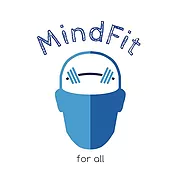
Mindfit For All
In partnership with Living Sport, Mindfit For All have produced a series of workout sessions for young people to access aiming to develop their resilience, with a theme each week. Initially put together over the summer of 2020 to support restarting school following COVID-19 lockdown, this video course is great way to support young people with their mental health through physical activity interventions at any time.
Visit: https://www.haypeterborough.co.uk/courses/taster-course-mindfit-for-all-with-living-sport/
Local Support

Cambridge United Foundation
The Mind your Head programme is a six-week mental health education programme designed for Year 8/9 students (aged 12-14). During the programme we deliver six classroom-based sessions each lasting 50 minutes, covering the topics of: We aim to increase mental health literacy within this age range, encourage positive conversations between young people to de-stigmatise mental health,
Read More About Cambridge United Foundation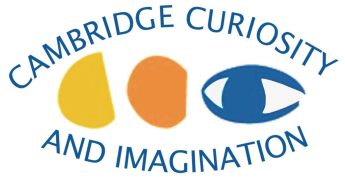
Cambridge, Curiosity and Imagination
Cambridge Curiosity and Imagination (CCI) believes that curiosity and imagination matter. We think of them as important muscles we need to care for and strengthen. Our work as an arts and wellbeing charity is driven by a vision of an inclusive, revitalised, accessible and creative society that embraces these qualities. Artists with environmental practices are
Read More About Cambridge, Curiosity and Imagination
Cambridgeshire Music Arts Therapy Service
The arts can play a vital role in helping people engage through using a non- verbal medium; supporting people to connect, engage and access change in a creative way. Therapy goals are about relating rather than developing a skill using a creative discipline to foster wellbeing for those who may struggle to access traditional talking
Read More About Cambridgeshire Music Arts Therapy Service
Centre 33
Working with Primary and Secondary Schools Across Cambridgeshire and Peterborough Centre 33 Young Carers Project works closely with primary and secondary schools across Cambridgeshire and Peterborough to raise awareness of Young Carers and ensure that support is in place for Young Carers at your school. Centre 33 supports schools to identify a Young Carers Champion,
Read More About Centre 33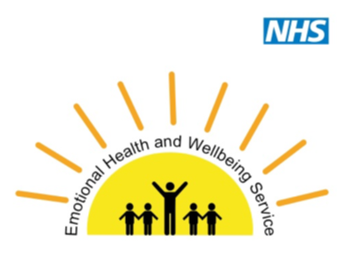
Emotional Health and Wellbeing Service (EHWS)
Background The Emotional Health and Wellbeing Service (EHWS) launched in January 2018, and covers Cambridgeshire and Peterborough. The service was created due to the recognition that there was a local gap in provision of service within the “Getting Advice” and “Getting Help” quadrants of the THRIVE model, adopted in Cambridgeshire and Peterborough. Who are we?
Read More About Emotional Health and Wellbeing Service (EHWS)
Healthwatch
Healthwatch Cambridgeshire and Healthwatch Peterborough We are the independent champion for people who use health and social care services in Cambridgeshire and Peterborough. Our job is to make sure that those who run local health and care services understand and act on what really matters to people. We listen to what people like about services
Read More About Healthwatch
HEAR – the free to use mental health text service
NHS Cambridgeshire and Peterborough provides HEAR – the free to use mental health text service HEAR 85258 is being funded by NHS Cambridgeshire & Peterborough, in partnership with the national service SHOUT. The free to use text service provides real-time support to people who are struggling with their mental health across the county. When texting
Read More About HEAR – the free to use mental health text service
Life Education Cambridgeshire & Peterborough
Life Education is a primary prevention programme focusing on drug and health education. We explore with young people how amazing their bodies are and how the human body can be affected by drugs. We develop understanding around physical and mental health. Through the ‘life skills’ approach, children are enabled to practise how to make healthy
Read More About Life Education Cambridgeshire & Peterborough
Nessie
Nessie is commissioned by Cambridgeshire County Council to provide free support to families of children and young people who self-harm. Nessie will be offering: parent workshops across Cambridgeshire schools, in community settings and online targeted 1-1 parent support telephone and online parent support school based group support for targeted group of young people NESSie is
Read More About Nessie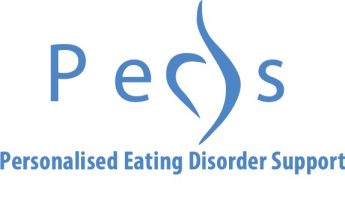
PEDS
Personalised Eating Disorder Support We are a Nurse-led specialist eating disorder charity based in Peterborough, supporting individuals in the Peterborough and Cambridgeshire area. Our charity offers assessment and support with signposting and where appropriate to service users, families and loved ones and professionals. We offer our service users individual sessions which are tailored to meet
Read More About PEDS
SEND
To get in contact with SEND about their services in the document above SEND OAP Toolkit – Learn Together (cambslearntogether.co.uk) Peterborough SEND OAP Toolkit – Learn Together (cambslearntogether.co.uk) Call: 01223 728 311 Email: [email protected]
Read More About SENDSORTS Team, Department of Psychiatry, University of Cambridge
Researchers at the Department of Psychiatry, University of Cambridge have produced a set of FREE resources to help school and college staff provide a supportive response to students who self-harm. The resources have been co-developed with mental health professionals, school staff and young people as part of a research project funded by the National Institute
Read More About SORTS Team, Department of Psychiatry, University of Cambridge
The Conversation
The Conversation Stamford was established in 2019 by Gemma Holbird and Sarah Jane Sauntson following several years experience working in the education and charity sector. A taster of our work can be found at the following link The Conversation Stamford – Who we are Our mission is to equip young people with knowledge, as well
Read More About The Conversation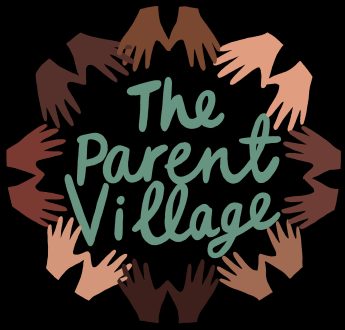
The Parent Village
The Parent Village is a registered charity which works with schools, local authorities and health bodies to support them with reaching parents and carers to develop shared approaches to supporting children and young people’s mental health. The team deliver this support both remotely and face to face through the following ways: For more information: Visit:
Read More About The Parent Village
YMCA Trinity Group
YMCA has been supporting young people in the UK and across the world for over 150 years. YMCA Trinity Group delivers needs led services to communities across Cambridgeshire, Peterborough & Suffolk. During the last 35 years we have developed extensive expertise in positive mental wellbeing which builds on our world-leading physical health programmes. We support
Read More About YMCA Trinity Group
YOUnited
YOUnited offers help to children and young people with their emotional wellbeing and mental health registered with a GP in Cambridgeshire and Peterborough. It is available to those up to the age of 25 and offers a range of support including therapies, counselling and guided self-help. Referrals can be made to YOUnited by a GP
Read More About YOUnitedResources
Documents
Teacher Guidance
- DfE Cyberbullying advice for Head Teachers
- DfE Developing a preventative approach
- DfE Mental Health and wellbeing training (primary)
- DfE Mental Wellbeing training module (secondary)
- DfE Preventing and tackling bullying Advice for headteachers, staff and governing bodies
- DfE Supporting Mental Health in Schools and Colleges
- Educare Supporting children with anxiety
- Educare What is Mental Health
- EHWS School Survey of Need Report July 2020
- EHWS School Survey of Need Report Presentation July 2020
- GOV teaching mental wellbeing Module 1 presentation
- Mental Health Competency Framework
- Mental Health resource pack High Speed Training
- Mental Health Training Competency Framework
- NICE Social and emotional wellbeing in primary education
- NICE Social and emotional wellbeing in secondary education
- PHE Promoting children and young people’s emotional health and wellbeing
- PSHE Association Teacher guidance:teaching mental health and emotional wellbeing
- Transforming Children and Young People’s Mental Health Provision: a Green Paper
External Links
- Action for Happiness
- Anna Freud
- Barnardos – Supporting Young People
- Barnardos Helping Families
- Barnardos See, Hear, Respond
- Better Health – Mental Well Being PHE
- Blueprint for Mental Health Provision in Schools
- Bullying UK – Anti Bullying Resources
- Cambridge United
- CAMHS
- Centre 33
- Child Bereavement UK
- Education Support
- Embrace – Victims of Crime Domesic Violence Support
- Emotional Health and Wellbeing Service
- GOV Teaching about mental wellbeing
- Health for teens
- Health Watch Cambridgeshire
- Health Watch Peterborough
- Keep Your Head Cambridgeshire and Peterborough
- KOOTH
- Learning Through Landscapes
- Mentally Healthy Schools
- MIND and CPSL Stress Less
- MindEd – e-learning to support healthy minds
- Minded – Mental Health Training
- My Happy Mind
- National Childrens Bureau
- PCC Webinar Module 2 Whole School Wellbeing
- PCC Webinar Module 3 Loss and Bereavement
- PHE – Measuring and monitoring children and young people’s mental wellbeing
- Royal College of Psychiatrists Young people’s mental health
- Sexual Assault Referral Centre
- TES Anti Bullying and Conflict Resolution Lessons
- The Children’s Society Well-being school resources
- The Compassionate Friends
- The Mix Essential Support for Under25s
- Time to change – school resources
- Winston’s Wish
- Young Minds & Beano Lesson Plan
- Youth Sports Trust – Well School Movement



